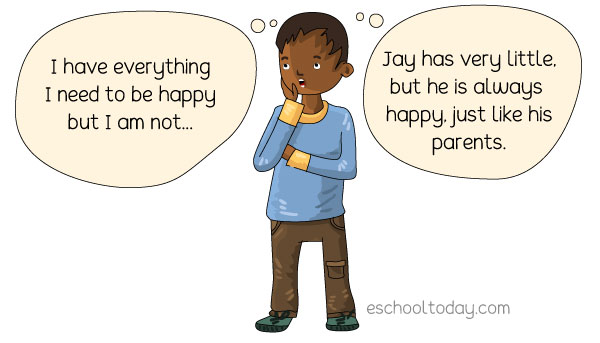- Poverty
What is poverty?
This lesson is a complex one because there is no easy way or standard definition of who is poor and who is not. We often look at the living conditions of people to get an idea of their situation. Typically, it is when someone experiences a fundamental deprivation of well-being.
According to UNICEF, 22,000 children die each day due to poverty. They die quietly in some of the poor villages on earth, far removed from the scrutiny and the conscience of the world. Being meek and weak in life makes these dying multitudes even more invisible in death. — www.globalissues.org
Each time you see images on TV and the internet with hungry people with no food, running water, often in tattered clothing and no shoes, living in mud houses in run-down communities (slums), you begin to have a better picture of poverty. This lowest condition is called Absolute poverty.
Sometimes, a researcher can look at the living standards of an individual, family, or community and compare it to the living standards of the broader community and classify them as poor if the researcher finds that their needs are way below that of everyone else. In this case, the researcher does the classification, and it is very relative. Experts call this Relative Poverty.

People and families are allowed to make their judgments into their living conditions, about the general living standards of the communities in which they live. You can see a family who owns a bicycle considering themselves as being among the well-to-do in the community. In another scenario, they can consider themselves as being among the poorest in the community if they compare themselves to other members of the community. That is known as subjective poverty.
Here is what a great social scientist in this subject describes what poverty is:
Individuals, families, and groups in the population can be said to be in poverty when they lack resources to obtain the type of diet, participate in the activities, and have the living conditions and amenities which are customary, or at least widely encouraged and approved, in the societies in which they belong. — Peter Townsend
The above definition will help us look a bit more into details at the various ways in which poverty can be understood.
